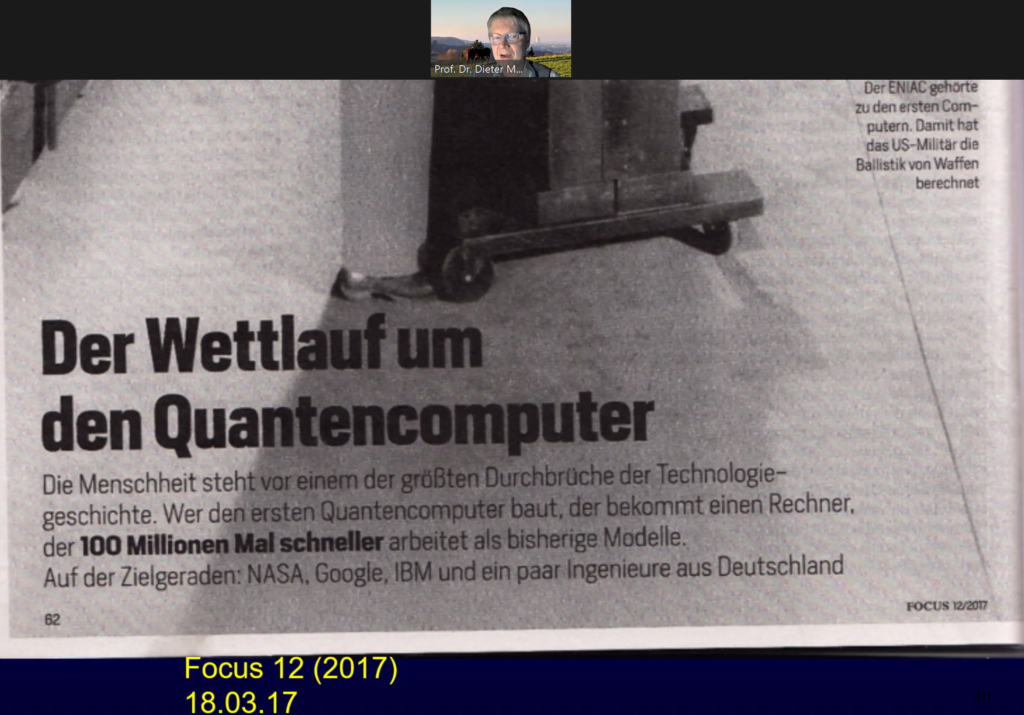Yesterday Dieter Meschede was invited by the Industrie-Club Bremen to give the opening talk of the Bremen Industry Talks entitled Quantentechnologie – Kuriosität oder technologische Revolution? [Quantum technologies – curiosity or technological revolution?].
Meschede discussed the roots of quantum technology and explained with a small example how QT 2.0 uses the superposition principle to establish physically and not algorithmically based security in communication. He also assessed opportunities and challenges quantum technology could offer for science and society.

Commenting on an article in the magazine Focus from 2017, Meschede elaborated on the fundamentally new operating principle of quantum computers which doesn’t make them only faster but suitable to tackle computationally intensive operations.
Meschede did not seize to point out that quantum technologies should not be regarded as a mysterious curiosity – an impression he receives by many citizens – whether scientifically educated or not. Not only is quantum physics by far the best tested theory among all known theories. Also our world, which is technologically and economically shaped by microelectronics and the information technology that builds on it, is inconceivable without quantum science.
Meschede’s talk received a huge interest. Over 250 participants from the general public as well as members of the German Physical Society registered for the online talk and engaged in a lively Q&A session.
The Industry Talks, a regional series of events organised by the DPG’s Arbeitskreis Industrie und Wirtschaft (AIW), are initially aimed at all physicists working in industry outside universities and research institutions, but are also popular with the general public. The industry talks offer forums for the exchange of experience on topics of physical research, the transfer of scientific findings into applications and current industrial topics, and they promote networking. Currently, Industry Talks are held in Bad Honnef, Berlin, Bremen, Chemnitz, Dresden, Gießen, Hamburg, Heidelberg, Jena, Munich and Stuttgart.
Browse the ML4Q News Archive